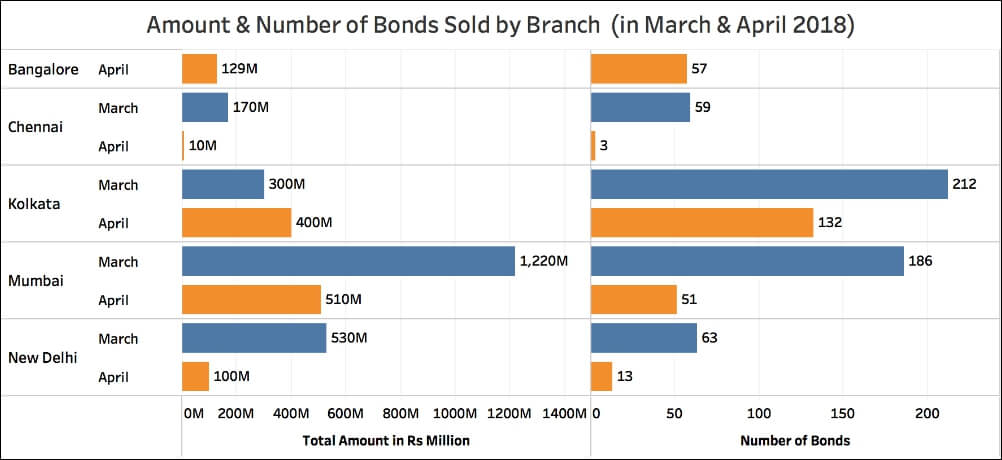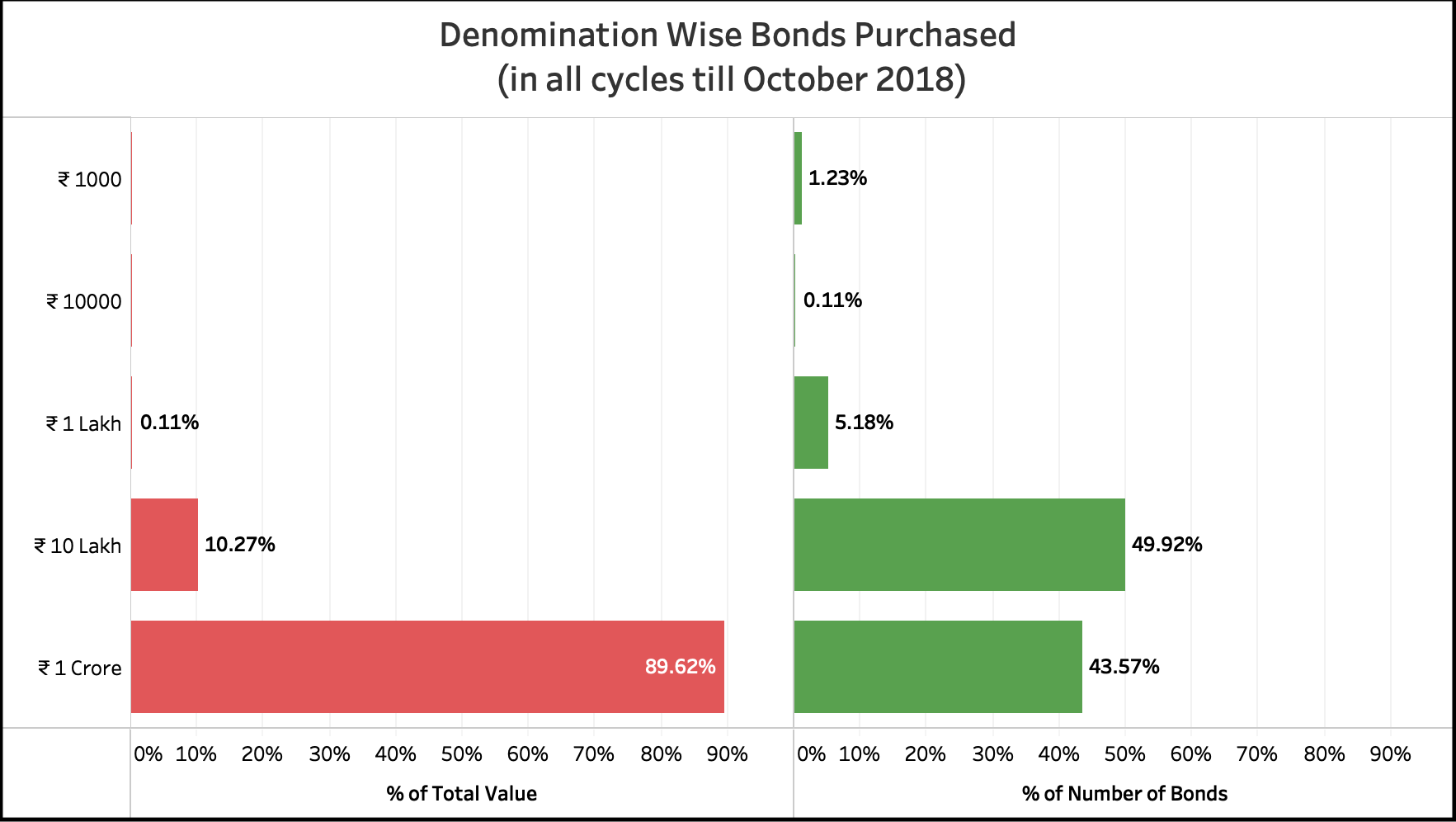[orc]Data from the annual audit report submitted by the BJP substantiates the assumption that the ruling party at the center would be the biggest beneficiary of the anonymous donations through electoral bonds. BJP was the beneficiary of 95% of the electoral bonds purchased in 2017-18.
The Electoral Bonds were first announced in the 2017-18 budget and the scheme was subsequently notified in January 2018. Factly had earlier written about the bonds, their impact on transparency etc. It was also anticipated that the ruling party at the center would be the biggest beneficiary of these anonymous donations. Data from the annual audit report submitted by the BJP to the Election Commission of India (ECI) further substantiates this assumption. BJP was the beneficiary of 95% of the electoral bonds purchased in 2017-18.
Electoral Bonds worth ₹ 222 crore were purchased in 2017-18
The electoral bonds scheme was notified in January 2018. March 2018 was the first month when these bonds were available for purchase from four different branches of SBI (Chennai, Kolkata, Mumbai & New Delhi).
Data obtained from SBI using the Right to Information (RTI) revealed that a total of 520 electoral bonds worth ₹ 222 crore were purchased in March 2018. Hence in the year 2017-18, these were the only bonds that were purchased. Most bonds (in terms of number) were purchased in Kolkata where 212 bonds were purchased. In terms of value, most bonds (worth ₹ 122 crore) were purchased in Mumbai.
 BJP received ₹ 210 crore out of the ₹ 222 crore
BJP received ₹ 210 crore out of the ₹ 222 crore
As per the 2017-18 annual audit report submitted by the BJP to the ECI, the party received ₹ 210 crore worth contribution in the form of electoral bonds. This is a whopping 95% of all the electoral bonds purchased in 2017-18. Since the design of the scheme does not allow for the disclosure of names of the contributors, it is impossible to find out who contributed these ₹ 210 crore to the BJP. Out of the total voluntary contribution of ₹ 989.7 crore received by the BJP in 2017-18, more than 21% or ₹ 210 crore is through electoral bonds. Even in terms of the total income of the BJP in 2017-18, more than 20% is through electoral bonds.
 45% of BJP’s income in 2016-17 was from unknown sources as per ADR’s analysis. This would further increase in 2017-18 because of the anonymous nature of electoral bonds.
45% of BJP’s income in 2016-17 was from unknown sources as per ADR’s analysis. This would further increase in 2017-18 because of the anonymous nature of electoral bonds.
What happened to the remaining ₹ 12 crore worth electoral bonds?
None of the national or state parties that have submitted their annual audit report for 2017-18 have declared any income from electoral bonds. It also has to be noted that the Congress & NCP are the only two national parties that are yet to submit their annual audit report for 2017-18. It is possible that the rest of ₹ 12 crore worth electoral bonds have gone to either the Congress or NCP or other state parties. It is also possible that a large part of these electoral bonds may not have gone to any party since data obtained using RTI also revealed that bonds worth ₹ 11 crore were not encashed by July 2018.
Corporates may be purchasing these bonds, not common citizens
Data of electoral bonds purchased in all the cycles till October 2018 clearly indicates that there is no demand for bonds of lower denomination. In terms of value, bonds of ₹ 1 crore denomination accounted for ₹ 782 crore or 89.6% followed by bonds of ₹ 10 lakh denomination that accounted for ₹ 89.6 crore or 10.3%. Together, they have accounted for close to 99.9% of total value of bonds purchased till date. Even in terms of the number of bonds purchased, 1678 out of the 1795 or 93.5% electoral bonds purchased till date are in the denomination of ₹ 10 lakh and ₹ 1 crore. Though there is no concrete information on the type of purchasers since SBI has refused to share such information, it is highly likely that the ₹ 10 lakh & ₹ 1 crore denomination are purchased by corporates than individuals.




4 Comments
Pingback: Interim budget of NDA vs UPA – Suri's
Pingback: Show Me the Money, India | TheHatTip | POLITEIA
Pingback: In charts: Who funds India’s political parties? | Arunachal Reflector
Pingback: Rs 6,000-Crore Electoral Bonds Sold; Oct 2020 Audits Will Show Who Got Them | - JIFFY360.COM